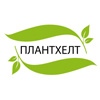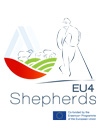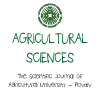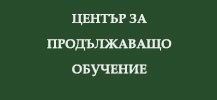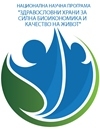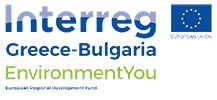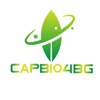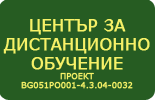Research project analytical skills
|
Course title: |
Research project analytical skills |
|
|
Course code: |
IFRAS |
|
|
ECTS: |
5 |
|
|
In-class hours |
Lectures: |
30 |
|
Laboratory work/Tutorials: |
30 |
|
|
Self-preparation hours |
Practical training: |
20 |
|
Other: |
20 |
|
|
Total hours: |
100 |
|
|
Language: |
English |
|
|
Study cycle: |
BSc, Master |
|
|
Semester: |
Winter, summer |
|
|
Faculty: |
Faculty of Economics |
|
|
Name of the lecturer(s): |
Assos. Prof. Minko Georgiev, PhD |
|
|
Mode of delivery: |
Face-to-face, distance learning |
|
|
Prerequisites: |
No prerequisites |
|
|
Learning outcomes of the course unit: |
Annotation: At the end of their study, students should have enough knowledge and experience to carry out a research and be able to analyze the results of it. Creating research project analytical skills in students is the main object of this course, which is achieved by delivering lectures and doing seminars on the main points of a good and completed research paper or theses. The research paper (the final thesis) presents the results of your investigations on a selected topic. Based on your own thoughts and the facts and ideas you have gathered from a variety of sources, a research paper is a creation that is uniquely yours. The experience of gathering, interpreting, and documenting information, developing and organizing ideas and conclusions, and communicating them clearly will prove to be an important and satisfying part of your education. With this course, we try to enable our students independently to carry out project work comprehending experimental, empirical, and/or theoretical investigation of one or more ways of presenting problems within central subjects in his/her education. The final thesis must document the student’s ability to apply scientific theories and methods at a sufficiently high level. The final thesis is often placed in continuation of the project work at previous semesters consisting of a continued investigation within a project area. The final thesis may be in the nature of further development or research and in many cases involve laboratory work, numerical model design, measurements on existing constructions or comparative calculations. Students’ final thesis should be written in such a way that persuades and convince others of their interesting, logical point of view on the chosen subject. This form of persuasion, often called academic argument, follows a predictable pattern in writing.
Through the thesis work, the students have to show their ability to apply the knowledge and skills obtained during the previous study and independently perform a given task with connection to their education. Students’ professional written and oral communication should be applied in order to develop and place the thesis work in a broader context.
Course description A very important phase of the work is the planning – structuring the project and choosing the work method. You document how you think to work during the project work in a planning report. The planning also contains a relatively detailed time schedule for the different activities. The planning work is important and many problems can be avoided with the right preparations. Along with doing the research itself, it is important to present the results in the best possible way that even people that have not read the thesis can follow the presentation and participate in the following discussion. In the short time that is scheduled for your presentation, you will not be able to present your work in detail. Therefore, you will need to decide on what you will take up during the presentation. The presentation should not be a compression of your whole work. Instead, you should concentrate on the important points in your work. You should find the red thread that runs through your whole presentation. A major goal of this course is the development of effective technical writing skills. Written and oral communications skills are probably the most universal qualities sought by graduate and professional schools as well as by employers. You alone are responsible for developing such skills to a high level. The skills, students get through the work on their research project can later give them an advantage in future business activities
Course Objectives A major goal of this course is the development of effective technical writing skills. Written and oral communications skills are probably the most universal qualities sought by graduate and professional schools as well as by employers. You alone are responsible for developing such skills to a high level. The skills, students get through the work on their research project can later give them an advantage in future business activities
|
|
|
Course contents: |
Contents of the program: Topic 1. Nature of research. Topic 2. Scientific problem. Expert Panel. Scientific theme. Form of research. Outline of the study Topic 3. Structure of research. Basic elements. Sources for input Topic 4. Introduction of the study. Aim. Tasks. Stages. Object. Methodology. Topic 5. theoretical part of the study. Theoretical reference. Formulation of hypotheses and scientific statements. Logical link between scientific problems and scientific theory. Topic 6. Methodological part. Selection and description of research methods. Methods for gathering information and data analysis. Topic 7. Analytical part. Relationship between the theoretical and analytical part of the study. Conclusions from the analysis. Topic 8. Structural part. Suggestions for solutions Topic 9. Conclusion. Guidelines for continued scientific searches Topic 10. Requirements for clearance and display of illustrations, tables, formulas, values Topic 11. Requirements for description and design of bibliographic content and applications Structure of articles and reports Topic 12. Preparation of presentations and protect Topic 13. Assessment of scientific work. (Scientific Product Topic 14. General knowledge of the legal framework. Rights, in publishing, quoting, use, implementation of products and routes of their parts. |
|
|
Recommended or required reading: |
1. Farell T., C. Donabedion, 1991. Writhing the Business Research Paper: A Complete Guide. Durham 2. Gibaldi J, 1999. MLA Handbook for Writers of Research Papers, New York 3. Тасев Г., 2004. „Методични основи на научните изследвания”. Авангард прима.София |
|
|
Planned learning activities and teaching methods: |
Lectures, presentations, tutorials, conversation, discussion, brainstorming |
|
|
Assessment methods and criteria: |
Written test |
|
 - Events on the occasion of the 80th anniversary of AU
- Events on the occasion of the 80th anniversary of AU
